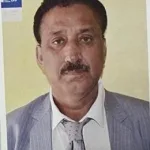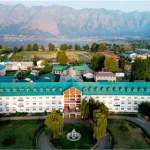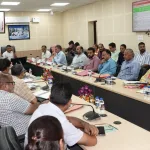Srinagar, June 16: The Health Department Kashmir will establish palliative care units across the rural hospitals in Kashmir and train the doctors and paramedical staff for it, officials said on Friday. These units will be established under the National Programme for Palliative Care (NPPC) to improve treatment facilities.
Dr Syed Arif Hussain, Nodal Officer NPPC, DHSK, said the national palliative care program has been very successful in the valley and they would strengthen further.
“We will establish palliative care units in all rural districts. In the treatment of opioids and morphine, the procurement was a difficult process and now the government has amended the laws. Training of doctors and paramedics is very important,” he said. “We are going to streamline it further by providing training for the doctors and paramedical staff by involving national faculty. There is a set protocol for training and staff will be trained in a similar way.”
Currently, Jawahar Lal Nehru Memorial Hospital (JLNM) Hospital, SMHS, SKIMS Soura, District Hospital Pulwama and Bandipora run palliative care services.
The nodal officer said the establishment of palliative care units will largely benefit the patients and people could be treated at their nearby hospitals ending travel to longer distances. “If there is a patient suffering from cancer and has pain, he/she can’t travel immediately to tertiary care hospital for treatment. There should be trained staff to treat the patients and end their problems,” he said.
The opening of the new palliative units will add the palliative care treatment facilities in the rural hospitals and it will also end the referral to tertiary care hospitals, he said, adding that till date, the facilities have remained confined to the tertiary care hospitals only.
Palliative care may be a new term for many people but it is a global movement to emphasize and assure “quality of life” and the “care component” within the healthcare sector, the nodal officer said.
He said presently most of the health services are disease-centered, specifically designed for acute episodic care. “The need for ongoing care for those who have long-term diseases, progressive diseases or incurable diseases are unmet within the current healthcare delivery system,” he said.





